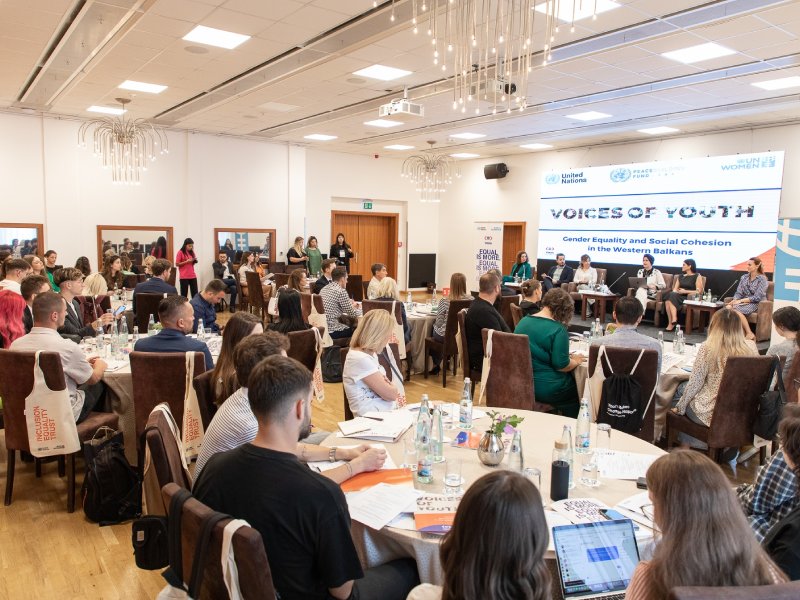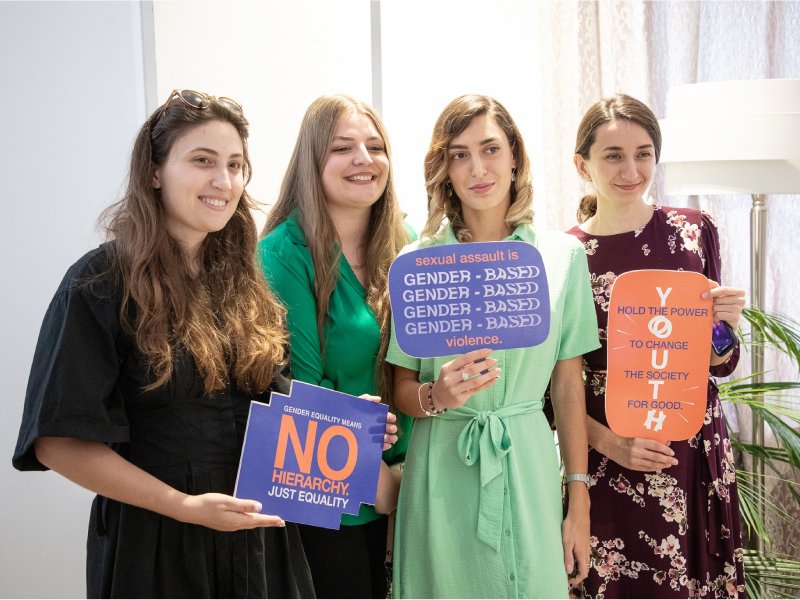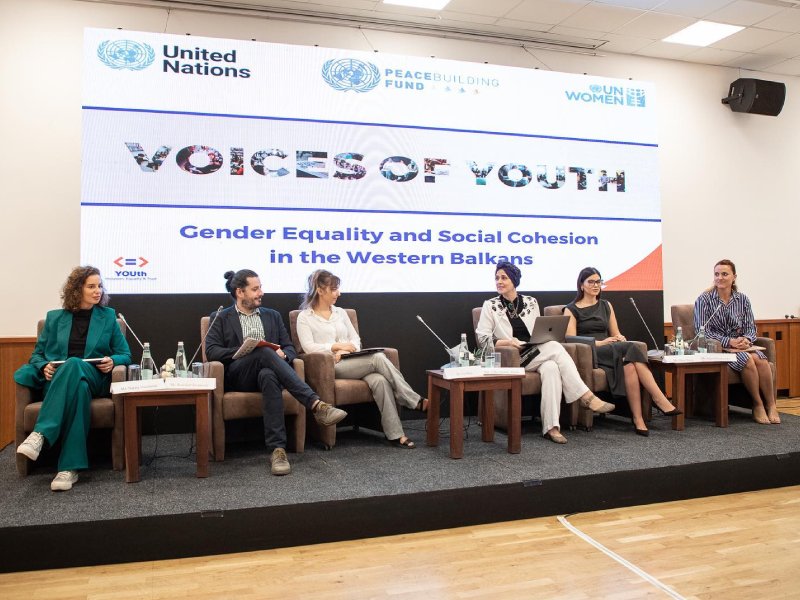On 21.09. in Tirana professor Zilka Spahić Šiljak Ph.D presented the results of research on the link between gender equality and social cohesion of young people in the Balkans, which was conducted by young researchers from Bosnia and Herzegovina, Serbia, Kosovo, and North Macedonia and Albania. Young people in the Western Balkans have identified toxic masculinity, gender stereotypes, hate speech, and media portrayal of traditional gender roles as factors that increase the risk of violence, especially violence against women, which is considered the most widespread form of violence in the entire region – according to the findings of a new study.
Gender equality and social cohesion are the fundamental pillars of a just and harmonious society. As part of the United Nations initiative ‘Youth 4 Inclusion, equality and trust’, UN Women undertook extensive regional research conducted by young researchers. Research is focused on exploring the interrelationship between gender equality and social cohesion in order to foster a more inclusive and just society. After months of dedicated research and analysis, the event in Tirana was an opportunity to share findings and recommendations with decision-makers, civil society organizations, young researchers, and youth networks.
The aforementioned research was fully conducted in accordance with the principles of youth support, as people aged 18 to 30 from the region participated in the design, implementation, and analysis of the research. Adhering to the basic ethical principle of “no harm”, young researchers performed a comprehensive analysis of data collected through various sources, including a literature review, five national consultations, two regional consultations involving over 210 young participants, 15 individual interviews, and an online survey with around 1200 interactions. On the basis of this data, an initial draft of the research paper was prepared, which was subsequently completed after online regional consultations with over 60 young people. The draft underwent analysis by a geographically representative and gender-balanced group of ten young people who provided feedback based on their contextual knowledge. Under the leadership of the main researcher prof. Zilka Spahić Šiljak Ph.D, who cross-analyzed data collected from five territories to provide a regional overview of key research questions, young researchers produced five national papers dealing with challenges and proposed solutions related to gender equality and social cohesion.























